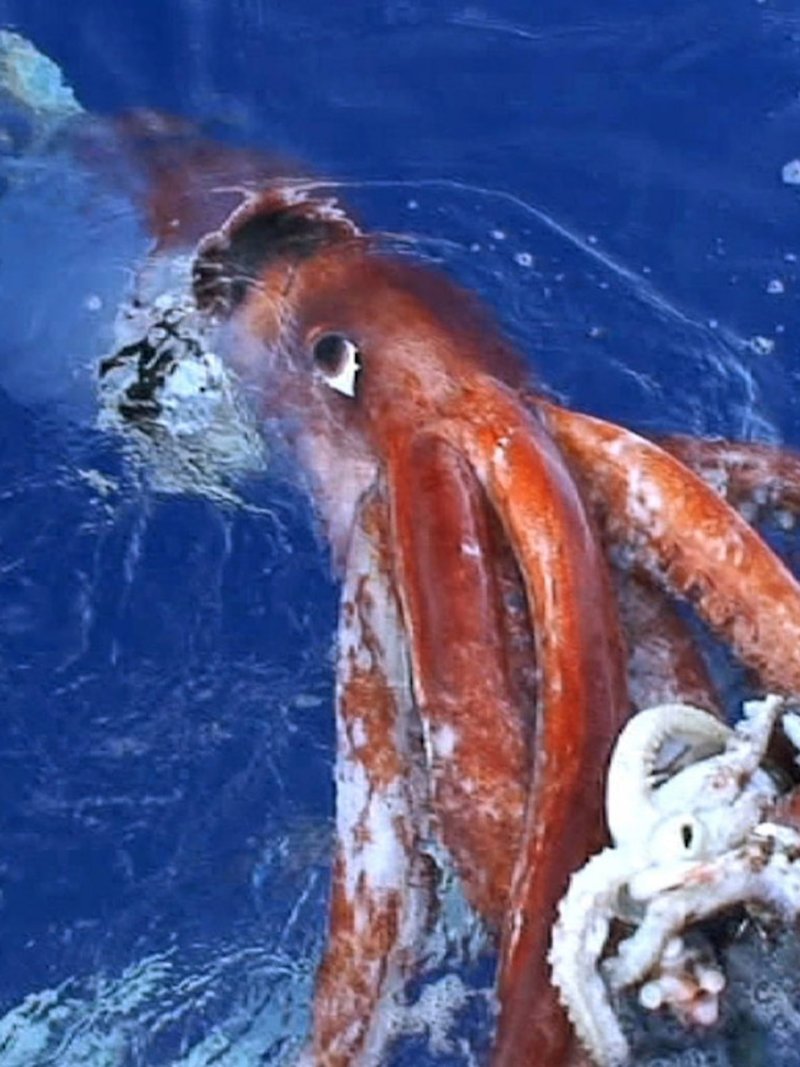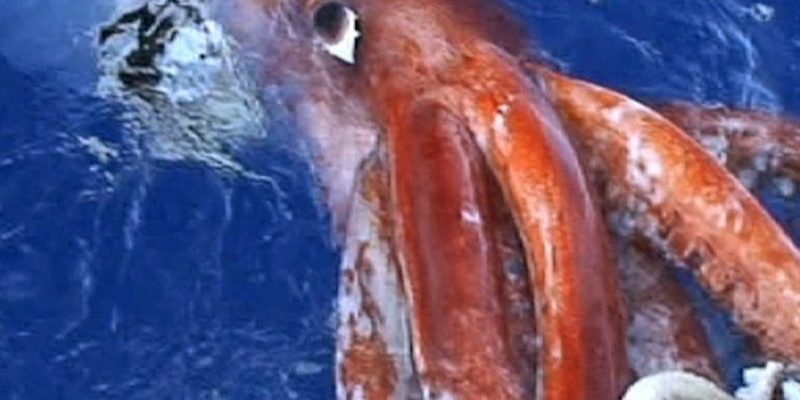
Let me explain why this matters. You see, like other marine species, giant squids face a variety of challenges that threaten their existence. From climate change to overfishing, our actions have a significant impact on their populations. So, whether you’re an ocean lover or just curious about these creatures, understanding their status is crucial. In this article, we’ll explore the conservation updates regarding giant squids, including their habitats, threats, and what’s being done to help them.
What Are Giant Squids?
Giant squids, known scientifically as *Architeuthis dux*, aren’t just your average sea creature. They can grow up to 43 feet long, with eyes the size of basketballs! These cephalopods live in deep ocean waters, often lurking hundreds of meters below the surface. Despite their massive size, they remain elusive, spending much of their time in the dark depths.
Interestingly, giant squids have a fascinating life cycle. They start small, hatching from eggs and growing over time to their colossal size. They primarily feed on deep-sea creatures, such as fish and other squids, using their long tentacles for hunting. But how do they fit into our ocean’s ecosystem? Well, by being both predator and prey, they help maintain the balance of marine life.
Current Conservation Status
So, are giant squids endangered? The simple answer is: we don’t really know. Because they inhabit such deep waters, it’s difficult for scientists to study their populations accurately. However, they are not classified as endangered by major conservation organizations like the IUCN.
That said, their populations could be threatened by several factors. Climate change affects ocean temperatures and can disrupt the delicate balance of marine ecosystems. Additionally, increasing human activities, like deep-sea fishing and pollution, could pose risks. The lack of robust data makes it challenging to declare their status definitively, but it’s a situation that requires attention.
Threats to Giant Squid Populations
Understanding the threats faced by giant squids is crucial for their conservation. Here are some of the main concerns:
- Climate Change: Rising ocean temperatures and acidification impact the entire marine food web, which could affect the availability of prey for giant squids.
- Overfishing: While giant squids themselves aren’t usually targeted directly, overfishing of their prey can result in food shortages.
- Pollution: Chemicals and plastics in the ocean pose risks to marine life, including giant squids. Pollutants can accumulate in their bodies, leading to health problems.
- Habitat Degradation: Activities like deep-sea mining can disrupt their natural habitats, potentially affecting their populations.
Each of these factors contributes to the larger picture of how human actions can impact even the most elusive creatures of the sea.
Efforts in Conservation and Research
Despite the challenges, there are ongoing efforts to ensure giant squids and other marine life have a future. Research plays a significant role in conservation. Scientists are using technology such as deep-sea cameras and tagging to study giant squids in their natural habitat. This helps us understand more about their behaviors and populations.
Moreover, many organizations focus on protecting marine environments. Sustainable fishing practices can help preserve the fragile ecosystems that giant squids depend on. When fishermen use methods that reduce bycatch, they not only protect giant squids but also other marine species.
Marine Protected Areas
Marine protected areas (MPAs) are critical for preserving marine life, including giant squids. The goal of MPAs is to create safe zones in the ocean where ecosystems can thrive without the pressures of human activity. These areas offer refuge for various species, promoting biodiversity and allowing populations to recover.
Although there’s no MPA specifically designated for giant squids, protecting their habitats plays a vital role in conservation efforts. By safeguarding large swathes of ocean, we can help ensure a healthier environment for all marine life.
The Role of Public Awareness and Education
Raising public awareness about giant squids and their conservation is essential. When people understand the importance of these creatures, they are more likely to support efforts to protect them. Educational programs in schools and communities help spread the word about ocean conservation.
Social media also plays a significant role in this. Engaging content can capture the attention of a broader audience, encouraging discussions about marine life and the need for conservation. When people share fascinating facts about giant squids, it not only raises awareness but also fosters a sense of connection to the ocean.
What Can You Do to Help?
You might be wondering how you can contribute to the conservation of giant squids and marine life in general. Here are a few actionable steps you can take:
- Support Sustainable Seafood: Choose seafood from sustainable sources to help protect marine ecosystems.
- Reduce Plastic Use: Minimize your plastic consumption to decrease ocean pollution. Remember, small changes make a big impact!
- Get Involved: Join local conservation groups or beach clean-up events to actively participate in preserving marine environments.
- Educate Others: Share what you’ve learned about giant squids and their importance to the ocean. The more people know, the more we can collectively work towards protecting them.
Every little action counts, and your efforts can help contribute to a healthier ocean for all creatures.
Final Thoughts
To wrap things up, the question of whether giant squids are endangered isn’t straightforward. While they’re not currently classified as endangered, various threats loom over them. Climate change, overfishing, and pollution all pose risks to their survival. Raising awareness and supporting conservation efforts is essential to ensure they continue to thrive in our oceans.
Giant squids may be mysterious, but they play a significant role in marine ecosystems. By understanding their needs and challenges, we can be better stewards of our oceans. Let’s work together to protect these fascinating creatures for future generations—after all, the sea holds many wonders waiting for us to explore and cherish!

